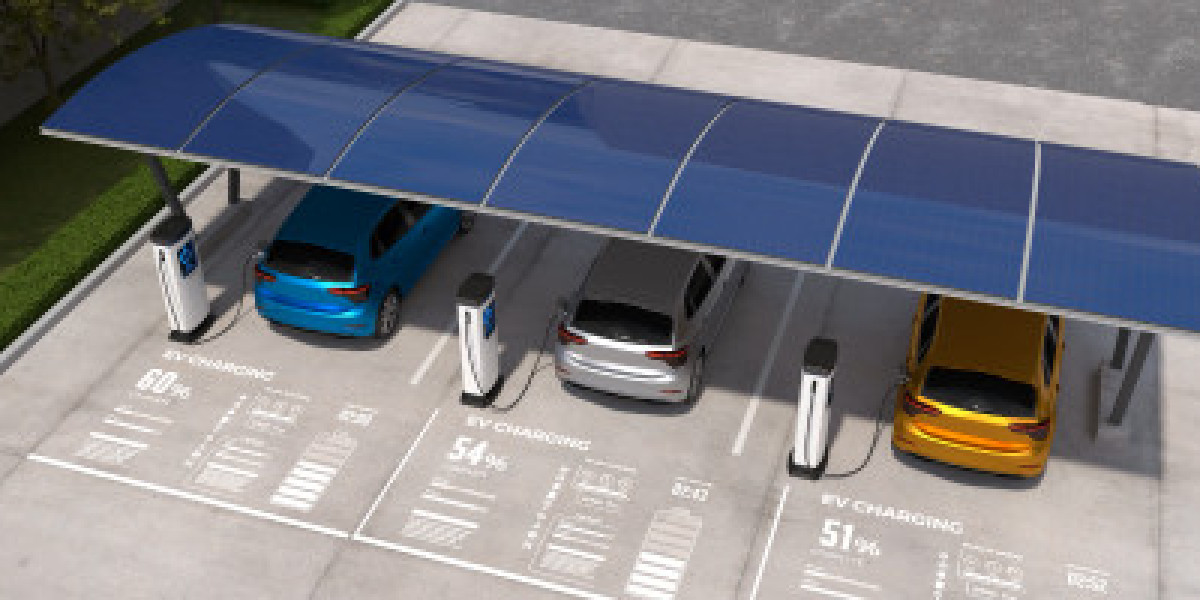How Electric Vehicles (EVs) Will Change the World in the Next Few Years
The transport industry is on the cusp of a revolutionary change, with electric vehicles (EVs) at the forefront. As the world becomes more sustainable and environmentally friendly, EVs are set to change industries, economies, and daily life. Let's see how EVs will change the world in the next few years.
1. Lower Carbon Footprint: A Greener Future
Lower air pollution: EVs don't have tailpipe emissions and help decrease levels of carbon dioxide (CO2) and nitrogen oxide (NOx).
Cleaner cities: Since there would be fewer gas-driven cars, the cities would become cleaner and experience better air quality.
Climate change mitigation: Lower emissions will be part of global efforts to combat climate change.
As estimated by the International Energy Agency (IEA), by 2030, EVs might save up to 1.5 gigatons of CO2 emissions per year
2. Disruption of the Automotive Industry
The surge of EVs is precipitating a fundamental disruption in the automobile industry, compelling legacy automakers to adapt or perish.
The most significant changes are:
Production shift: There is significant investment in EV production by automakers, with major players such as Tesla, BYD, Tata Motors, and Hyundai.
Technology advancements in battery: Solid-state batteries and upgraded lithium-ion batteries will provide higher ranges and accelerated charging.
Self-driving EVs: Autonomous electric vehicles will mainstream, revolutionizing ride-hailing and personal driving.
By 2035, there will be a projected 50% of total new car sales worldwide being electric.
3. Integration of Renewable Energy
The EV revolution is complemented by the expansion of renewable energy.
As EVs become more popular:
Vehicle-to-Grid (V2G) technology: Not just will EVs use energy, but also store and feed energy back into the grid at peak demand times, enhancing energy stability.
Solar-powered EVs: Firms are creating solar-panel-integrated EVs, minimizing charging station reliance.
Growing demand for clean energy: Charging networks will lead the growth of solar, wind, and hydropower installations.
By 2040, EVs may be part of the energy ecosystem, offering distributed storage to stabilize power grids.
4. Economic and Job Market Transformation
The EV revolution will transform economies around the world and lead to new opportunities for jobs. It will, however, also disrupt conventional industries:
Creation of new jobs: Increased production of batteries, charging stations, and servicing EVs will create millions of jobs.
Reduction in oil dependence: Oil-exporting nations will experience economic transitions as EV use minimizes fuel consumption.
Reduced maintenance: EVs have fewer parts and do not have engines, minimizing repair work, which will save consumers money.
The EV market is expected to grow to $1.3 trillion by 2030, opening immense economic opportunities.
5. Smart Cities and Connected Mobility
EVs will be at the center of smart cities with cutting-edge mobility solutions:
Connected vehicles: 5G and IoT-enabled EVs will provide real-time information on traffic, weather, and road conditions to enhance efficiency.
Smart charging stations: Smart EV charging points will facilitate dynamic pricing and automatic charging, making it more convenient.
Mobility as a Service (MaaS): Electric fleets will increasingly be used by ride-sharing platforms to curb traffic congestion and emissions.
By 2030, more than 60% of all major city public transport may be electric.
6. Improved Energy Efficiency and Cost Savings
EVs have substantial cost and efficiency benefits over conventional cars:
Less in operating expenses: Electricity is less expensive than gasoline, and EVs require fewer maintenance requirements.
Improved energy efficiency: EVs translate 60-70% of energy from the grid into motion, while ICE vehicles achieve 20-30%.
Battery recycling and reuse: Used EV batteries will be repurposed for residential energy storage, ensuring sustainability.
Bloomberg reports that EV owners will save approximately $1,200 per year on fuel and maintenance expenses.
7. Increasing EV Charging Infrastructure
As more people adopt EVs, governments and businesses will invest significantly in charging networks:
Fast-charging stations: Fast chargers will cut charging time to 15-20 minutes, making EVs more convenient for long-distance travel.
Wireless charging: Future technology will enable EVs to be charged while parked or even on the move, making it more convenient.
Home and office chargers: The installation of residential and office charging stations will prompt more individuals to adopt EVs.
Over 40 million public charging stations will be required by the world by 2030 to accommodate the fleet of EVs.
Conclusion: The EV Revolution is Inevitable
The shift to electric cars is no longer a prospect for the future—it is already underway. As battery technology, infrastructure, and renewable energy become increasingly intertwined, EVs will not only revolutionize transport but also redesign economies and societies.
An electric, green, and cleaner future fueled by EVs is on the horizon—one fill-up at a time.
https://kharidoev.com/



